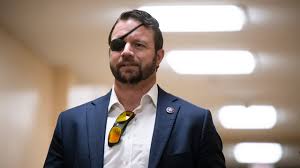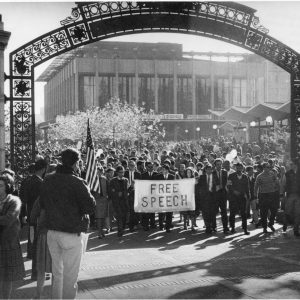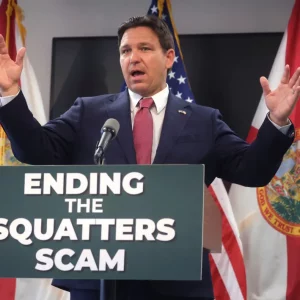
This is one part of the larger debate on gun control in the U.S. The opposing article can be found here.
Infuriating political stalemate aside, Congress must act to bring about gun control legislation.
The current trajectory of federal inaction in the wake of a record number of gun-related massacres suggests the likelihood that it would cost many more lives before a single measure to curb gun violence is enacted. This is absolutely sickening, and intolerable for a democracy which prides itself on protecting the interests of its people. It is an utter disservice to the American public.
The shootings at Sandy Hook Elementary on December 14, 2012 took the innocent lives of 20 unsuspecting children and 6 adults. Shortly following the attacks, President Obama addressed the nation from the James S. Brady Briefing Room, envisioning himself not as a president, but as a father. In contemplation of the humanitarian aspect of his job, the president could not help but shed a tear for those who unknowingly lost their lives. Around the nation, many followed suit. But this wouldn’t be the only incident.
Over the next couple of years, Americans could only watch as the news of the carnages in UC Santa Barbara, Aurora, Umpqua, and Charleston —among many— appeared in newspapers, TVs, and magazines.
Time after time, for over 23 times during his presidency, Obama solemnly addressed the nation in despair. And yet, many other killings but fly under the media’s radar. On Capitol Hill, lawmakers held moment of silences each time. There is silence, and nothing more from them.
A distasteful political battle; A politically driven crisis
Gun violence has turned so routine, becoming nearly synonymous with the natural occurrence of events in the United States.
But it shouldn’t be that way, despite the push from strong interest groups.
The National Rifle Association — one of the nation’s most prominent gun rights group and an influential force through congressional endorsements — primarily appeals to gun producers and sponsorship organizations such as the Gun Owners of America. They are a politically-driven group aimed at appealing to right-wing ideologists.
The NRA adamantly denies supporting gun control measures which would allow terrorists and dangerously-marked citizens from obtaining firearms. It fights nearly all gun-control legislation, while in contrast pushing for legislation which would make gun ownership easier. In fact, its head marksman, Wayne LaPierre, insensibly stated after the Newtown shootings that the “only thing that stops a bad guy with a gun is a good guy with a gun”, even concocting the belief that Obama is trying “to ban the use of firearms for home self-defense”. The truth of the matter is, the NRA and other similar interest groups have continued to deceive the public, masking their true intentions with altruistic rhetoric such as “protect[ting] the rights of the American people”.
However, the NRA and other gun rights lobbyists simply fail to realize the humanitarian side of protecting the American public from the potentially perilous nature of gun proliferation.
Perhaps the political impasse is the most frustrating of all. Lawmakers always display a level of sympathy after every reported mass killing, yet fail to legitimately fight for legislation that would help curb such violence. They speak of common interests to protect the lives of all Americans, yet fail to act on such measures. Although individual senators have proposed measures that would make it more difficult to purchase firearms and states have passed legislation such as those which ban semiautomatic weapons (CT), the federal government continues to display a predilection for inaction.
Moreover, inaction following gun-related tragedies underscores how the fight on gun control in the federal government has turned into one political in nature. Due to a divided government during Obama’s second term, political gridlock resulting from right-wing supporters against restrictive measures have frustratingly led to minimal legislative action on the prevalent, critical issue of gun control. This appearance of an apathetic federal government casts an illusion of a president unwilling to pass any such legislation, which results in unwarranted blame casted on Obama by the general public. Quite on the contrary, President Obama continues to seek ways to pass gun control laws through executive action. A month after the Sandy Hook shootings, Obama ordered 23 executive actions aimed at research on gun violence and mental health. According to multiple sources, he is contemplating additional executive actions to enact universal background checks. He has proposed several bills to Congress, only to be denied passage. And amidst the exasperating tries of the president, Republicans have even threatened impeaching Obama if executive actions continue to circumvent Congress. No wonder the president, with limited powers, and the public, watching the political drama unfold, embody the same notion of frustration.
For gun violence, the issue has become toxic and too devastatingly pervasive in our society. Congress must set their differences aside and do what’s logical and right — act to pass legislation which would make it more difficult for such attacks to occur. There is no doubt simple gun control measures would make a difference; at the very least, it would prove ineffective but it certainly won’t worsen the issue.

Simple gun control measures would curb gun-related violence
Lone-wolf killers present the largest threat to domestic security, not terrorists; over the past six years, 74% of domestic attacks have involved lone-wolf killers. In addition, the majority involve the use of firearms, with approximately 73% of mass shootings involving handguns.
Few restrictive measures have made it easy for any citizen to get ahold of a gun. With simple, “common sense” legislation, a term referenced by Obama, gun violence incidents can be significantly reduced.
For instance, closing loopholes is a must, as our background check system is broken . Current federal regulations only require licensed dealers to clear gun sales by checking with the FBI’s NICS database . And as of 2014, denials occur about 1% of the time. Yet, most states have no check requirements for firearms purchased on the Internet, at gun shows, or between individuals, which commonly occur. In addition, despite their risky operations, guns do not need liability insurance. Also, states are not forced to share all records —including mental health — with the NICS database, which was the case in the Virginia Tech killer, Cho — who massacred 32 college students — was declared mentally ill by a judge but was still able to pass the background check.
Thus, passing legislation to enact comprehensive, universal background checks is crucial. We need background checks to resemble more of a strict and comprehensive visa application process, where a purchaser’s complete history, including mental disposition, is scrutinized by the federal government — and not done overnight — before granting him or her the green light to purchase a gun. Because right now, background checks take only mere minutes, which is very problematic.
In fact, current lenient gun control measures have cost hundreds of lives in the U.S., and have rendered the nation one of the deadliest affected by guns. In 2015 to date, 294 mass shootings —indiscriminate killings which involve four our more fatalities — have occurred, with the death total climbing to 9,956 and those injured to 20,000. And from 2001 – 2011, there have been an average of 11,385 gun homicide deaths per year. In stark contrast, only 517 domestic terrorist attacks on U.S. soil have occurred annually; excluding 9/11, that number drops to 37.
There are steps the federal government can take to mitigate any possible adversarial ownership of guns. Perhaps limiting the number of weapons carried per family to one, or restricting carry areas to limited public places outside of schools and the workplace would suffice.
More importantly, gun control measures such as those suggested above are tested to be effective. In the UK and Australia, in response to mass shootings, firearm-restricting legislation has nearly eliminated all subsequent mass shootings.
False blame on mental health issues
However, it is prudent not to confound the issues of mental health with those of gun violence. Sure, our mental health system is broken — a mentally ill patient is shot by police every 36 hours and many are locked up for nonviolent crimes — but only 3-5% of violent acts in the US are committed by someone mentally ill.
Liberal issue?
Is the debate over gun control measures a sign that our nation is becoming too liberal? In fact, our nation has the largest gun ownership per capita, at around 8.9 firearms per 10 residents. Undoubtedly, the carrying must be respected as a freedom, as a right. But preserving precious lives must take precedence over anything else.
Admittedly, no single piece of legislation will reduce the number of fatalities due to gun violence. Radical ideologies of certain individuals also cannot be eradicated; although this is accurate, all efforts must be put in to diminish as much violence as the government can control.
Acting now
Gun control should not be a political issue. As parents, as civil servants, as countrymen, we should be united on this core issue of safety.
There is no question — the Second Amendment must be dutifully protected as a constitutional right to carry. But when does common sense finally take over? The right to live is greater than the right to carry. Gun violence is not what the founding fathers had envisioned when crafting the Second Amendment; the Constitution is a living document that must adapt to our current society.
At the very least, the government should listen to the people; after all, as Lincoln proclaimed in the Gettysburg Address, the American democracy is a “government of the people, by the people, for the people”.
And the general public wants such legislation. In fact, the majority of Americans want stricter gun laws. Also, in a recent poll conducted this month by McClatchy, 63% of registered voters are more afraid of gun violence as opposed to 29% who are more concerned by possible terrorist attacks.
Too many lives have been lost unnecessarily through gun violence, and we must act — not just say we will act — to prevent another shooting tragedy.





Be First to Comment